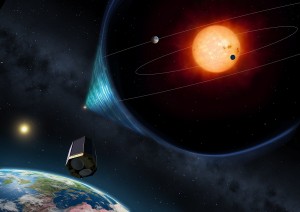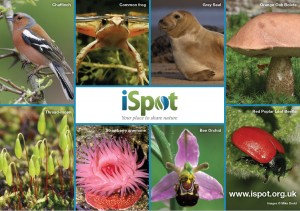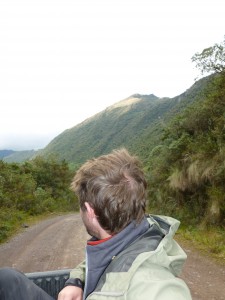Science Matters 2013 Lecture Programme: Perspectives on cutting edge research in physical and environmental sciences
This event took place on 12th December 2013 at 1:30pm (13:30 GMT). Select Science Matters Programme to view the recording of this event.
Event summary
Open University research in the physical and environmental sciences is conducted within CEPSAR. CEPSAR research focuses on the origins, systems and processes that form the stars and planetary bodies, the processes and natural systems that shape the environment of our habitable world now and in the past, and essential properties of a Solar System that allows life to develop on one of its planets. In this programme of school lectures, jointly organised with the Denbigh Teaching School Alliance as part of the Engaging Opportunities project, we heard from four Open University scientists working at the cutting edge of physical and environmental science research. These scientists explored key issues, questions and concepts relating to their particular area of scientific research. The talks were followed by an opportunity to ask questions as the four speakers returned to the stage for a panel Question and Answer session.
Sweat, mud and leeches: A day in the life of a geologist in the Himalayas
Dr Clare Warren, Senior Research Fellow, The Open University
Geologists study rocks and fossils in order to understand how the Earth formed 4.5 billion years ago, and how the continents and oceans have changed since then. I’m particularly interested in mountains. Mountains form where two tectonic plates collide into each other (slowly!), and their rise and eventual erosion affects where geological processes such as volcanic eruptions, earthquakes, landslides and even long-term climate change happen.
In order to understand how (and how quickly) mountains grow and eventually erode, geologists do fieldwork in mountainous areas. We collect rock samples to figure out which rock types appear in different areas. Much of this aspect of my research takes place in the Himalayas. This talk described a whistle-stop tour of a typical geologist’s day in the Himalayan mountains in Bhutan – the delights of camping, the local food, the work and the fun.
Exoplanets and how to find them
Dr Andrew Norton, Professor of Astrophysics Education, The Open University
20 years ago, astronomers did not know for certain that any star other than our sun had planets orbiting it. Now we know of around a thousand so-called exoplanets.
In this talk Andrew described one of the techniques for detecting planets around other stars and show what can be learnt about them from astronomical observations.
Putting the citizen into science: iSpot, your place to share nature
Janice Ansine, Biodiversity Observatory Project Manager, The Open University
A citizen scientist can be anyone; it involves members of the public collecting and sharing data. This could be from your local park, backyard or somewhere more exotic.
One of the great things about being a citizen scientist is that you can learn more about the species around you while at the same time contributing useful information to science. iSpot (www.ispotnature.org) is one example of a citizen scientist website that allows you to do this.
In this talk Janice described the approaches the iSpot team are using to support citizen scientists as they build their identification skills. She shared some of the findings from the site, including a moth spotted for the first time in the UK by a six-year-old girl. She also provided details about how you can join the site and become a citizen scientist.
Back to the future: using proxy data to assess environmental change
Frazer Bird, Postgraduate Research Student, The Open University
Our planet is very different from place to place; we have hot environments, cold environments, wet, dry, windy, even calm environments. But not only is it different from place to place it has also been very different back in time. The environment outside our windows has not always been like it is now. The deserts were not always deserts and the Polar Regions were not always icy and cold.
Frazer is a Palaeoecologist; he studies how environments change on long timescales. He is interested in how our planet has come to be the way it is and how that might give us clues as to what it will be like in the future. In his talk Frazer provided an insight in to Earth’s recent history. Humans haven’t been here very long and so we can’t rely on old books to learn about earth history. Instead, we have to learn to read the clues that are left behind. In other words, scientists look for evidence by proxy. In his talk Frazer explained how he is trying to do this in the South American Andes mountains.





